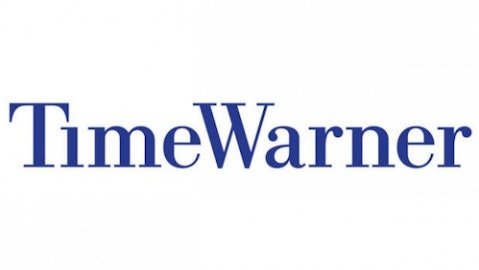Time Warner Inc (NYSE:TWX) is rumored to be continuing its move away from older forms of media, with the potential sale of most of its magazine division to Meredith (NYSE:MDP). If a deal does take place, Time Warner will be continuing its move toward the digital world. Is this the right path?
Getting Digital
A few years ago, Time Warner broke off its cable business as a separate company. That move unlocked the value of the company’s cable assets and allowed it to focus on its media empire, effectively breaking its content from its cables. It was a long-awaited shift, particularly after the massively disappointing merger with America Online, which itself was spun off to the public as AOL.

Still a Real-World Laggard
However, the company’s print products have not done nearly as well, and many haven’t translated well into the Internet world. The group, like most physical publishers, has suffered through continued advertising declines. Since even Apple’s iPad hasn’t been able to push magazines and books fully onto the digital plane, it seems appropriate that Time would consider shifting away from this space as it works to become more and more digital.
According to the rumor, reported by The New York Times and Bloomberg, large magazine publisher Meredith would take on most of Time’s magazines and form a new company. The new entity would pay a large dividend to Time. Time Warner would continue to hold its namesake title Time, Sports Illustrated, and Fortune, none of which fit well with Meredith’s lineup. Meredith would get more complementary titles such as Real Simple and InStyle.
Although print publishing has been a difficult industry, Meredith’s focused approach appears to be working. While it is hard to suggest that it is a thriving business, its magazines and related properties are clearly holding their own. Getting bigger is likely the best way for the company to both grow and protect its business.
In fact, the more properties it owns, the more powerful its advertising sales are likely to be. That makes this rumored purchase a very opportunistic one, since such large brand portfolios don’t come on the market all that often. In the end, the company is basically earning its keep from advertising, and the more targeted space you have to sell, the better.
Content has Value
This shows that content has value, but only if you can monetize really well. Time Warner, focusing on its video efforts, didn’t pull that off with its magazine titles. Meredith, on the other hand, with a keen focus, has done a better job. Interestingly, these aren’t the only companies making notable shifts in the content world.
Change is All Around
General Electric Company (NYSE:GE), for example, recently agreed to sell its remaining ownership stake in NBCUniversal to Comcast. An industrial company owning a media network didn’t really fit very well, so jettisoning the assets made sense for General Electric Company (NYSE:GE) since it was trying to refocus itself. Comcast, meanwhile, had a dominant position in the cable industry but lacked quality content. So, the deal made sense all around. The rush to sell the remaining stake was rumored to be about a clash in management styles.
Either way, Comcast is building up the content side of its business. This is, clearly, the opposite direction of Time Warner. However, for a cable operator that has had to pay more for content, it is an important hedge. Now that it owns the content itself, it can better control its costs.
It’s also a notable business change that could be the precursor to a Time Warner like cable split down the line. If Comcast finds that the margins in owning an important video creating asset has notably better margins than owning cable lines, it could decide to use the cash cow cable business to continue building its content business. Then, at some point, just split off the cable side and be a content company like Time Warner.
The Scavenger
All of these moves, however, can open up opportunities, like the one that Meredith is rumored to be taking advantage of. While it may never be a high-growth video business, if Meredith keeps picking up unwanted “real world” assets, even small purchases, it can keep its business going for decades. That, of course, will give it plenty of time to adjust to the world around it. With a notable increase in the dividend in recent years, and the financial capacity to cover it, Meredith might be a good fit for investors seeking income. This is particularly true given its more-than-4% yield.
The Others
Time Warner is clearly shifting to a more growth-oriented profile if the deal goes through — as is Comcast. GE, meanwhile, is getting back to its roots, which should interest more conservative investors. Note, however, that the company’s finance arm is still a big part of the business, which presents some risks. GE yields over 3%. Time Warner and Comcast, with much lower dividend yields, are more appropriate for investors interested in capital appreciation.
The article Moving to Digital originally appeared on Fool.com.
Copyright © 1995 – 2013 The Motley Fool, LLC. All rights reserved. The Motley Fool has a disclosure policy.




